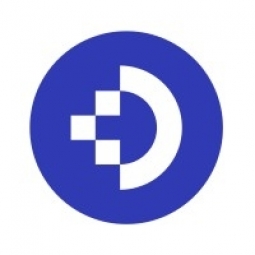Customer Company Size
SME
Region
- Europe
Country
- Germany
Product
- DocuWare
- Steribase
Tech Stack
- Windows 2008 Server
- VPN
Implementation Scale
- Enterprise-wide Deployment
Impact Metrics
- Productivity Improvements
- Cost Savings
Technology Category
- Application Infrastructure & Middleware - Data Exchange & Integration
Applicable Industries
- Pharmaceuticals
- Healthcare & Hospitals
Applicable Functions
- Quality Assurance
Use Cases
- Regulatory Compliance Monitoring
Services
- System Integration
About The Customer
Profusio Leipzig Gesundheits GmbH is a pharmaceutical manufacturer based in Leipzig, Germany. The company is a contractor for pharmacies and is specialized in producing patient-specific intravenous drips. Top product quality and on-time delivery are the main success factors of the company, which was founded under the name Oncosachs Pharma in 2006 and belongs among the market leaders in Germany. Pharmaceutical production is bound by very strict laws in Germany. Safety and control of the production process need to be guaranteed and documented. Therefore, pharmaceutical companies are required to create comprehensive documentation and protocols regarding the production process and must retain them for at least 5 years after the expiration period of the drug has ended.
The Challenge
Profusio Leipzig, a pharmaceutical manufacturer, is required to create comprehensive documentation and protocols regarding the production process and must retain them for at least 5 years after the expiration period of the drug has ended. This results in more than 450,000 pages of production, quality control, and release documents that have to be archived every year, adding 1,500 every day. The company needed a solution to better cope with this document volume and to be able to quickly find documents on demand. The company also wanted to save natural resources by completely going paperless. The documentation security was the key aspect in drug manufacturing.
The Solution
The DocuWare document management system was implemented in February of 2010. The system was installed on the existing Windows 2008 Server and on all client workstations which are part of the production process. The integration with Steribase, the pharmaceutical production software used by Profusio, was performed by an Authorized DocuWare Partner and was then approved by the state testing authority based in Dresden. This ensures that the documentation of the production, testing, and release processes with DocuWare follows the rules of the GMP standard. An integrated document workflow also controls all steps in a fully automated way – from production to the release of the drugs. As additional hardware, a Kodak I1220 was purchased for capturing of paper documents.
Operational Impact
Quantitative Benefit

Case Study missing?
Start adding your own!
Register with your work email and create a new case study profile for your business.
Related Case Studies.

Case Study
Case Study: Pfizer
Pfizer’s high-performance computing software and systems for worldwide research and development support large-scale data analysis, research projects, clinical analytics, and modeling. Pfizer’s computing services are used across the spectrum of research and development efforts, from the deep biological understanding of disease to the design of safe, efficacious therapeutic agents.

Case Study
Hospital Inventory Management
The hospital supply chain team is responsible for ensuring that the right medical supplies are readily available to clinicians when and where needed, and to do so in the most efficient manner possible. However, many of the systems and processes in use at the cancer center for supply chain management were not best suited to support these goals. Barcoding technology, a commonly used method for inventory management of medical supplies, is labor intensive, time consuming, does not provide real-time visibility into inventory levels and can be prone to error. Consequently, the lack of accurate and real-time visibility into inventory levels across multiple supply rooms in multiple hospital facilities creates additional inefficiency in the system causing over-ordering, hoarding, and wasted supplies. Other sources of waste and cost were also identified as candidates for improvement. Existing systems and processes did not provide adequate security for high-cost inventory within the hospital, which was another driver of cost. A lack of visibility into expiration dates for supplies resulted in supplies being wasted due to past expiry dates. Storage of supplies was also a key consideration given the location of the cancer center’s facilities in a dense urban setting, where space is always at a premium. In order to address the challenges outlined above, the hospital sought a solution that would provide real-time inventory information with high levels of accuracy, reduce the level of manual effort required and enable data driven decision making to ensure that the right supplies were readily available to clinicians in the right location at the right time.

Case Study
Gas Pipeline Monitoring System for Hospitals
This system integrator focuses on providing centralized gas pipeline monitoring systems for hospitals. The service they provide makes it possible for hospitals to reduce both maintenance and labor costs. Since hospitals may not have an existing network suitable for this type of system, GPRS communication provides an easy and ready-to-use solution for remote, distributed monitoring systems System Requirements - GPRS communication - Seamless connection with SCADA software - Simple, front-end control capability - Expandable I/O channels - Combine AI, DI, and DO channels

Case Study
Driving Digital Transformations for Vitro Diagnostic Medical Devices
Diagnostic devices play a vital role in helping to improve healthcare delivery. In fact, an estimated 60 percent of the world’s medical decisions are made with support from in vitrodiagnostics (IVD) solutions, such as those provided by Roche Diagnostics, an industry leader. As the demand for medical diagnostic services grows rapidly in hospitals and clinics across China, so does the market for IVD solutions. In addition, the typically high cost of these diagnostic devices means that comprehensive post-sales services are needed. Wanteed to improve three portions of thr IVD:1. Remotely monitor and manage IVD devices as fixed assets.2. Optimizing device availability with predictive maintenance.3. Recommending the best IVD solution for a customer’s needs.

Case Study
Fusion Middleware Integration on Cloud for Pharma Major
Customer wanted a real-time, seamless, cloud based integration between the existing on premise and cloud based application using SOA technology on Oracle Fusion Middleware Platform, a Contingent Worker Solution to collect, track, manage and report information for on-boarding, maintenance and off-boarding of contingent workers using a streamlined and Integrated business process, and streamlining of integration to the back-end systems and multiple SaaS applications.








